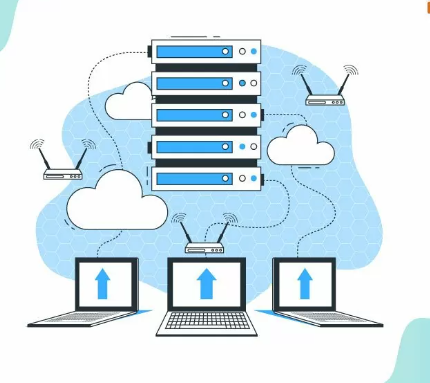Factors to Consider
When choosing a Cloud VPS provider, consider factors such as uptime guarantees, customer support, scalability options, security features, and pricing. Researching user reviews and conducting a trial period can also help you make an informed decision.

Popular Providers
Some popular Cloud VPS providers include Amazon Web Services (AWS), Microsoft Azure, Google Cloud Platform (GCP), and DigitalOcean. Each provider offers unique features and pricing structures tailored to different needs.
Setting Up a Cloud VPS
Initial Steps
Setting up a Cloud VPS involves selecting a provider, choosing the appropriate plan, and configuring your server environment. This includes selecting the operating system, setting up administrative access, and configuring network settings.
Configuration and Optimization
Once your Cloud VPS is set up, optimizing its performance is crucial. This involves installing necessary software, optimizing resource usage, setting up security measures, and regularly updating the system to ensure smooth operation.
Security in Cloud VPS Hosting
Common Security Threats
Cloud VPS is vulnerable to threats such as malware, DDoS attacks, and unauthorized access. These threats can compromise data integrity and availability, making robust security measures essential.
Best Practices for Security
Implementing strong passwords, regular software updates, firewalls, and intrusion detection systems are essential for maintaining security. Regular security audits and monitoring can help detect and mitigate threats promptly.
Performance Optimization for Cloud VPS
Importance of Performance Optimization
Optimizing the performance of your Cloud VPS ensures that your applications run smoothly and efficiently, providing a better user experience.
Techniques and Tools
Performance optimization techniques include optimizing databases, using caching mechanisms, load balancing, and monitoring server performance. Tools such as New Relic, Datadog, and Nagios can help in monitoring and optimizing performance.
Backup and Recovery
Necessity of Regular Backups
Regular backups are crucial to protect against data loss due to accidental deletions, hardware failures, or cyber attacks.
Effective Backup Strategies
Effective strategies include regular automated backups, offsite storage of backup data, and periodic testing of backup integrity. Tools like Acronis, Veeam, and Backblaze can facilitate effective backup management.
Cost Management in Cloud VPS Hosting
Understanding Pricing Models
Cloud VPS hosting pricing models can be pay-as-you-go, reserved instances, or spot instances. Understanding these models helps in selecting the most cost-effective plan.
Tips for Cost Efficiency
To manage costs, regularly review resource usage, scale resources according to demand, and take advantage of pricing discounts for long-term commitments.
Use Cases for Cloud VPS Hosting
Small Business Applications
Cloud VPS hosting is ideal for small businesses needing reliable and scalable web hosting solutions without high upfront costs.
Large Enterprises
Large enterprises benefit from Cloud VPS hosting by utilizing multiple virtual servers for different applications, ensuring high availability and disaster recovery capabilities.
Personal Projects
Individuals can use Cloud VPS hosting for personal projects such as developing web applications, hosting blogs, or running game servers.
Future Trends in Cloud VPS Hosting
Emerging Technologies
Emerging technologies such as edge computing, containerization, and serverless computing are shaping the future of Cloud VPS hosting, providing more efficient and scalable solutions.
Predictions for the Future
The future of Cloud VPS hosting is expected to focus on increased automation, enhanced security measures, and more integration with artificial intelligence to predict and manage resource usage.
Common Challenges and Solutions
Technical Issues
Common technical issues include server downtime, performance bottlenecks, and software compatibility problems. Solutions involve regular maintenance, monitoring, and using reliable hosting providers.
Customer Support Challenges
Good customer support is essential for resolving issues quickly. Choosing a provider with 24/7 support and positive customer reviews can mitigate support challenges.
Conclusion
Cloud VPS hosting provides a flexible, scalable, and cost-effective solution for businesses of all sizes. By understanding its benefits, choosing the right provider, and implementing best practices for security and performance, you can ensure a reliable and efficient hosting environment for your applications.
FAQs
What is the difference between managed and unmanaged Cloud VPS?
Managed Cloud VPS means the hosting provider takes care of server management tasks, while unmanaged Cloud VPS requires you to handle these tasks yourself. Managed is ideal for those without technical expertise, whereas unmanaged suits those who want full control.
How do I choose the best Cloud VPS provider?
Consider factors such as uptime guarantees, customer support, scalability options, security features, and cost. Researching and comparing different providers based on these criteria can help you make an informed decision.
What are the security measures needed for Cloud VPS?
Essential security measures include implementing strong passwords, regular software updates, firewalls, intrusion detection systems, and regular security audits.
Can Cloud VPS improve website performance?
Yes, Cloud VPS can improve website performance by providing dedicated resources, optimizing server configurations, and utilizing performance optimization tools and techniques.
What is the future of Cloud VPS hosting?
The future of Cloud VPS hosting is expected to focus on increased automation, enhanced security measures, and integration with emerging technologies such as edge computing and artificial intelligence.